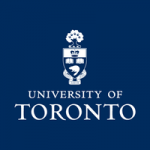Sayeh Meisami is Associate Professor of Philosophy at University of Dayton in Ohio. She studied at Universities of Tehran and Toronto for her Postgraduate degrees. Before starting her position in Dayton, she taught philosophy in Iran and Canada. She has published several books and articles in the fields of philosophy and religion. She is the author of Mulla Sadra (2013), Knowledge and Power in the Philosophies of Ḥamīd al-Dīn Kirmānī and Mullā Ṣadrā Shīrāzī (2018), and Nasir al-Din Tusi: A Philosopher for All Seasons (2019). In line with her interdisciplinary interests, her most recent articles demonstrate the significance of poetic techniques of thinking and writing in later Islamic philosophy and sufism, and her ongoing research is on the continuity of mythological and philosophical discourses in the Persianate context.

